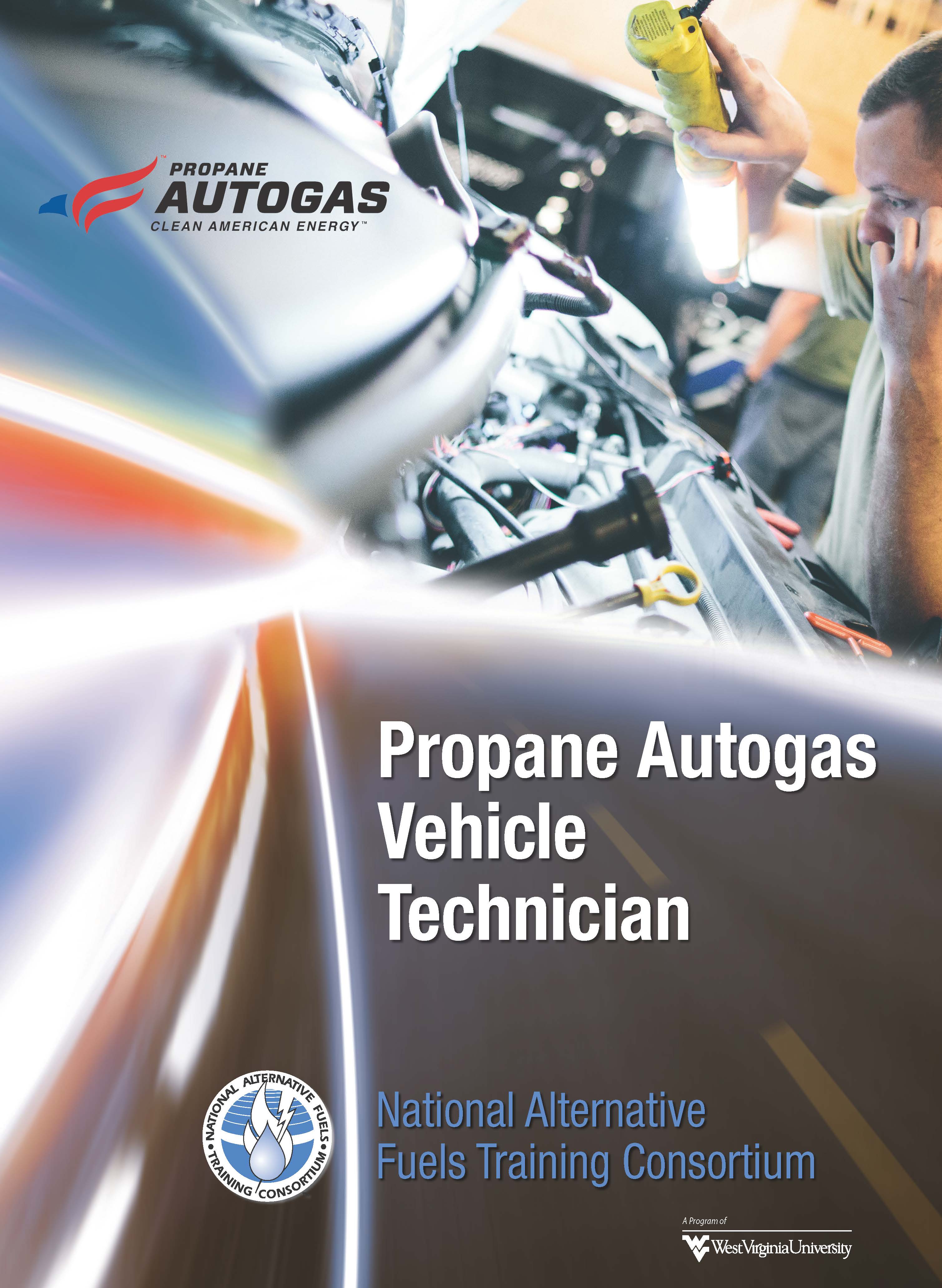Wednesday, July 25, 2018
A free, Propane Autogas Vehicle Technician Training course is being held for professional automotive technicians currently working in the automotive repair industry who want to enhance their skills and learn more about working with propane autogas vehicles. It also is for Fleet Managers, Secondary Education, and Post-Secondary Education. The three-day course will be held July 31 to Aug. 2, 2018, at the Universal Technical Institute in Irving, Texas. 
The National Alternative Fuels Training Consortium (NAFTC) in conjunction with the Propane Education & Research Council (PERC) has partnered to coordinate the Propane Autogas Vehicle Technician Training Courses. Recognizing a need for qualified technicians to adapt, service, and maintain these vehicles, the comprehensive course covers topics including propane characteristics, fuel systems, vehicle compatibility, system components, and safety. By the end of the course, participants will have an in-depth understanding of servicing and maintaining propane autogas vehicles.
For more advanced propane autogas training, such as the upcoming propane autogas conversion classes, contact the NAFTC for more information.
Course Objectives
Taught by certified NAFTC instructors, this three-day course will enable you to:
Course Materials Provided to the Participant:
• Participant Manual - including review questions and learning activities
• Program certificate
State-of-the-art classes are offered at locations across the United States through the National Alternative Fuels Training Consortium, a not-for-profit program of West Virginia University. Customized classes can be brought to your doorstep and are designed to meet your particular needs. Please contact This email address is being protected from spambots. You need JavaScript enabled to view it. for details, class pricing, and for NAFTC membership information.
About:
The Propane Education & Research Council (PERC) is a check-off program established, operated, and funded by the propane industry. The only energy council of its kind, PERC leads safety and training efforts among propane retailers and consumers and drives technology development to expand adoption of propane as a clean, domestic, and affordable energy source. PERC programs benefit a variety of industries including fleet vehicle management, landscape and golf, residential and commercial building, agriculture, and material handling.
The National Alternative Fuels Training Consortium (NAFTC) is a pioneer and national leader in developing, managing and promoting programs and activities that desire to cure America’s addiction to oil, lead to energy independence and encourage the greater use of cleaner transportation. The NAFTC is the only nationwide alternative fuel vehicle (AFV) and advanced technology vehicle training organization in the United States. It is our mission to provide the training infrastructure for implementing widespread use of alternative fuels, AFVs and advanced technology vehicles, in an effort to increase our nation’s energy security and improve air quality by reducing greenhouse gas emissions from the transportation system.
The NAFTC is headquartered at West Virginia University in Morgantown, WV.

The National Alternative Fuels Training Consortium (NAFTC) in conjunction with the Propane Education & Research Council (PERC) has partnered to coordinate the Propane Autogas Vehicle Technician Training Courses. Recognizing a need for qualified technicians to adapt, service, and maintain these vehicles, the comprehensive course covers topics including propane characteristics, fuel systems, vehicle compatibility, system components, and safety. By the end of the course, participants will have an in-depth understanding of servicing and maintaining propane autogas vehicles.
For more advanced propane autogas training, such as the upcoming propane autogas conversion classes, contact the NAFTC for more information.
Course Objectives
Taught by certified NAFTC instructors, this three-day course will enable you to:
- Explain the sources and processing of liquefied petroleum gas (LPG)
- Describe the components of a propane autogas fuel system and explain how each operates
- Know the different fuel delivery methods and how they differ (vapor, liquid, and direct)
- Explain the three types of propane autogas fuel system configurations (bi-fuel, dual fuel and dedicated)
- Learn the concepts of pressure, density, and volume in describing, measuring, and handling propane autogas
- Explain the operation of the electronic control module (ECM) and the components that connect to it
- List the different steps in the conversion of a conventional vehicle
- List personnel and shop safety procedures and describe the appropriate responses to common emergencies such as fire, gas leakage, and collision
Course Materials Provided to the Participant:
• Participant Manual - including review questions and learning activities
• Program certificate
State-of-the-art classes are offered at locations across the United States through the National Alternative Fuels Training Consortium, a not-for-profit program of West Virginia University. Customized classes can be brought to your doorstep and are designed to meet your particular needs. Please contact This email address is being protected from spambots. You need JavaScript enabled to view it. for details, class pricing, and for NAFTC membership information.
About:
The Propane Education & Research Council (PERC) is a check-off program established, operated, and funded by the propane industry. The only energy council of its kind, PERC leads safety and training efforts among propane retailers and consumers and drives technology development to expand adoption of propane as a clean, domestic, and affordable energy source. PERC programs benefit a variety of industries including fleet vehicle management, landscape and golf, residential and commercial building, agriculture, and material handling.
The National Alternative Fuels Training Consortium (NAFTC) is a pioneer and national leader in developing, managing and promoting programs and activities that desire to cure America’s addiction to oil, lead to energy independence and encourage the greater use of cleaner transportation. The NAFTC is the only nationwide alternative fuel vehicle (AFV) and advanced technology vehicle training organization in the United States. It is our mission to provide the training infrastructure for implementing widespread use of alternative fuels, AFVs and advanced technology vehicles, in an effort to increase our nation’s energy security and improve air quality by reducing greenhouse gas emissions from the transportation system.
The NAFTC is headquartered at West Virginia University in Morgantown, WV.

